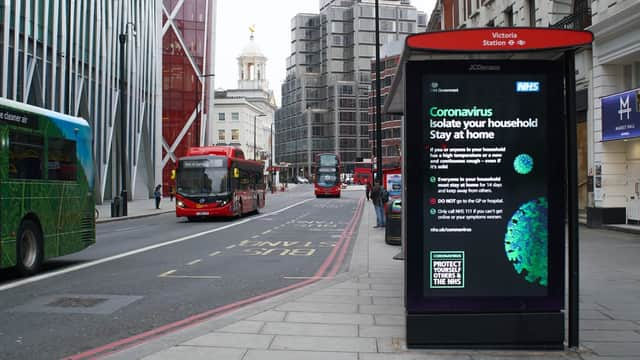Government did not have ‘detailed contingency plans’ in place for pandemic


The government was not as prepared as it could have been for the Covid pandemic, the National Audit Office (NAO) found.
The spending watchdog said that when coronavirus first hit the country in early spring last year, the Government "lacked detailed contingency plans to manage the unfolding situation".
Advertisement
Hide AdAdvertisement
Hide AdThis included identifying those who needed to shield, as well as managing mass disruption to schooling, said the NAO.
The NAO also said there had been problems setting up employment support schemes, and that communications had not always been clear and timely, with guidance on personal protective equipment (PPE) changing 30 times up to the end of July 2020.
The report also said there had not always been a clear audit trail to support decisions to award PPE contracts.
However, the NAO report did say there were also examples of "impressive" national and local responses, including the successful Covid vaccine rollout.
Advertisement
Hide AdAdvertisement
Hide AdThe NAO said that in the future, officials should make better use of data, improve the resilience of key services and adopt a better approach to preparing for crises.
‘The risk of widening inequalities’
By March this year, the Government had spent £372 billion to help deal with the health crisis, with the NAO now warning that the money spent so far in response to the pandemic may have an impact on the longer-term sustainability of the public finances.
The NAO has now urged ministers to come up with ideas to prevent "widening" inequality caused by the pandemic.
The report said: "While the response to the pandemic has provided new learning from both what has worked well and what has not worked well, it has also laid bare existing fault lines within society, such as the risk of widening inequalities, and within public service delivery and government itself."
Advertisement
Hide AdAdvertisement
Hide AdHead of the NAO, Gareth Davies, said: "COVID-19 has required government to respond to an exceptionally challenging and rapidly changing threat. There is much to learn from the successes and failures in government's response and this report is our initial contribution to that process.
"Applying these lessons is not only important for the remaining phases of the current pandemic but should also help better prepare the UK for future emergencies."